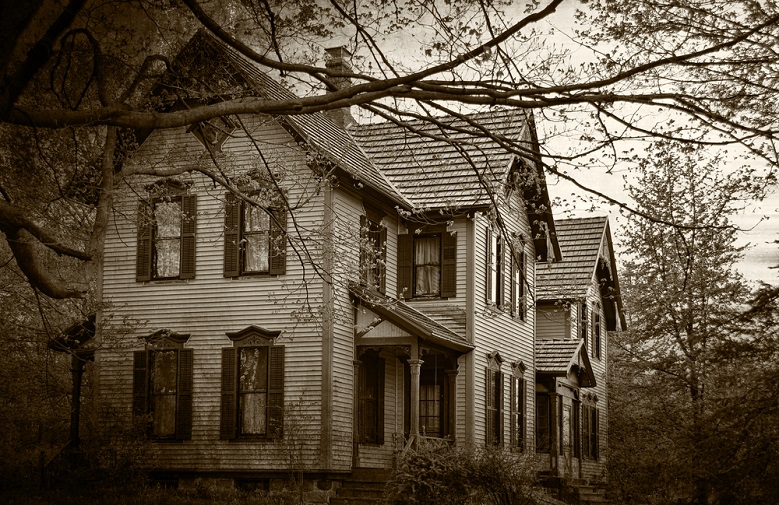
By Ethan Roberts
Buying a home can be a nerve-racking experience for some people. With Halloween approaching, what better time is there to look at some of the scary things that go through first-time homebuyers’ minds when they’re about to close on a new home? If you’re about to buy a new home, you may be feeling anxious about some of these things, too. But don’t worry, these fears are all normal. Let’s address them one by one.
1. What if I lose my job and can’t pay my mortgage?
If you lose your job and you’re renting, the landlord could give you an eviction notice for non-payment within three days after your rent is due. However, when you have a mortgage, you could actually miss up to three monthly payments before the bank would begin the foreclosure process, and that can drag on for months or even years. So you have plenty of time to find another job and pay your loan.
In addition, there are programs now through the U.S. Department of Housing and Urban Development (HUD) to help homeowners who lose their jobs. But the best solution in any case is prevention. Try to save enough money to establish a reserve fund of six months of expenses in case the worst ever does happen.
2. What if I need a new roof or heating system?
After going into contract on a house, the next step is to hire a home inspector to thoroughly examine all of the systems of the home to ensure they’re fully functioning and not near the end of their usable life. If the inspector finds that the roof and heating are in good shape, you can have confidence that you won’t have problems with these expensive systems for quite awhile.
But if the inspector does find problems with the expensive systems of the home, there should be a clause in the contract that allows you to negotiate with the seller for repairs to be made before the closing of escrow.
3. What if I don’t have time to take care of everything in my house?
There are always people who are looking for work to mow the lawn or clean your house or pressure-wash the siding. Consult the local ads, talk to your neighbors, or ask you Realtor to recommend local service people who are dependable and reasonable in their pricing.
4. What if the neighbors aren’t nice?
There will always be some people who are nice and others who aren’t, no matter what neighborhood you move into. Most likely the majority of the people you meet on your street will be friendly and welcome you into their community. Just be as friendly and nice as you can and hopefully you will have very nice neighbors as well.
5. What if there’s crime in the area?
In many areas, crime statistics are available online that you can check to assess the safety of a neighborhood. You can also call the local police department to ask them what they know about a particular area of town.
6. What if I can’t fit all my old furniture in the new home?
On the day of your home inspection, take measurements of the spaces in each room while waiting for the inspector to finish. Anything that won’t fit can be sold and the proceeds can go toward buying new furniture.
7. What if I have termites or other bugs?
In addition to a home inspection, you can also have a Wood Destroying Organism (WDO) inspection to check for live termites or other pests. Once again, if the inspection finds any issues, you may be able to negotiate with the seller to remedy the problem.
8. What if my insurance goes up?
Let’s face it, all insurance costs increase over time. So it’s a good idea to shop around and ask friends and family whom they would recommend as a low-cost insurance provider when you’re first looking at houses.
9. What if I find out that the local schools are no good after we move in?
There are websites such as Neighborhoodscout.com and greatschools.org that rate schools according to test measures, graduation rates, and other variables. Spend some time looking at these sites and talk to other parents about the local school systems.
10. What if the house turns out to be too small for our needs?
It might be possible add a bonus room, screened porch or other type of room at some point in the future. It’s also possible that you may decide to move. Always try to buy the biggest home for the money, and if necessary, you can make repairs and improvements over time.
By following these suggestions, you can relax this weekend, and instead of imagining real estate horror stories, just enjoy the frightening costumes of neighborhood children. Happy Halloween!
 Ethan Roberts is a real estate writer, editor and investor. He’s a frequent contributor to InvestorPlace, and his work has been featured on MSN Money and Reuters. He’s also written for Seeking Alpha, Investopedia, The Fiscal Times, ForSaleByOwner and Smarty Cents, and was one of five contributing editors to The Tycoon Report. He’s been investing in real estate since 1995 and has been a Realtor since 1998. He also teaches classes on investing in residential real estate.
Ethan Roberts is a real estate writer, editor and investor. He’s a frequent contributor to InvestorPlace, and his work has been featured on MSN Money and Reuters. He’s also written for Seeking Alpha, Investopedia, The Fiscal Times, ForSaleByOwner and Smarty Cents, and was one of five contributing editors to The Tycoon Report. He’s been investing in real estate since 1995 and has been a Realtor since 1998. He also teaches classes on investing in residential real estate.

